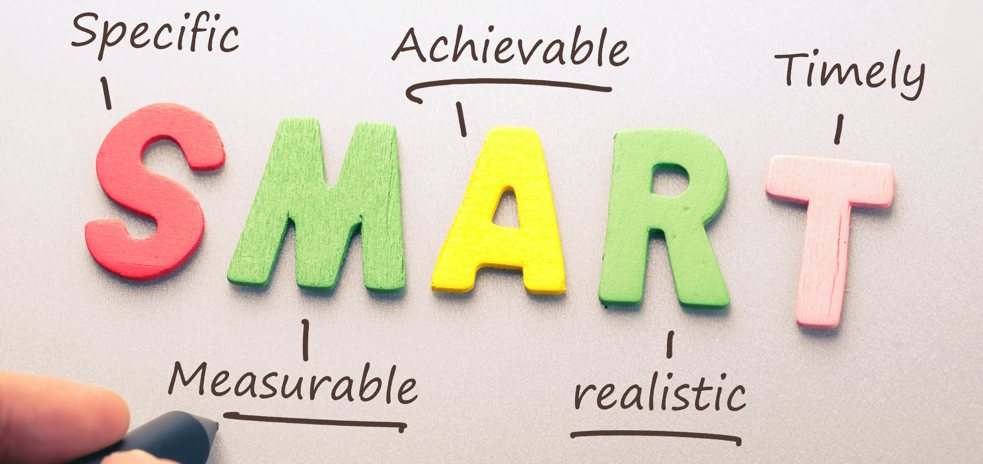You’ll have heard me say this 100 times before, but its true; what gets measured, really does get done! Setting targets is key to progression in your fitness journey. Here are our tips and tricks on how to set goals which you can achieve.
Be SMART about it!
SMART targets are intended to help people clarify and set goals which they are likely to achieve by making sure they meet the following criteria.
Specific – You need to be specific about what you want to accomplish. If your goal is too broad, or has to many elements, it can be overwhelming, leaving you unsure of where to start. Focus on one target at a time, whether that be weight related, strength related or stamina related.
Measured – Set a way to measure if you’re achieving your targets. With long term goals, its crucial to set milestones along the way to measure whether you are on track to meet your end goal.
Achievable – Its important to remember that a goal is supposed to inspire and motivate you. If it seems absolutely impossible to achieve, it will do the complete opposite of that.
Realistic – Another key ingredient is realism. For example, if you don’t have the time to commit to training regularly, you must bare this in mind when setting your goals. Similarly to with weight loss, if you are currently 16 stone and aspire to be 12 stone, you need to bare this in mind when setting the time frame.
Time-bound – Make sure your goal has realistic timing. Strict time constraints can be demotivating, however its important to put some pressure on yourself in order to achieve them. Prevent putting it off.
Its also important to divide your goals and focus on each individually. Some goals are conflicting, for example: its difficult to loose weight and build strength at the same time, as muscle mass is often heavy. Therefore, you’re going to become really demotivated if you’re setting goals to lose 3 pounds per week whilst trying to increase the amount you can lift by 10kg.

Weight Related Goals
The speed of weight-loss is crucial to sustainability. Fast weight-loss often leads to fluctuations and struggling to keep the weight off for long periods of time. Changing your lifestyle permanently is often the most successful way to keep the pounds coming off at a steady rate. Slow and steady wins the race!

Strength Related Goals
As far as weight lifting goes, the best indicator of progress is something called relative fitness. Its important to keep track of where you started, and monitor your progress in comparison.

Fitness Related Goals
Similarly, fitness goals should be relative to your natural ability. If you can run 1 mile at the start of your fitness journey, its realistic to think that with training you could increase that by half a mile per week, if you ran 3 times, increasing the length of your jog by a couple of minutes each time.

